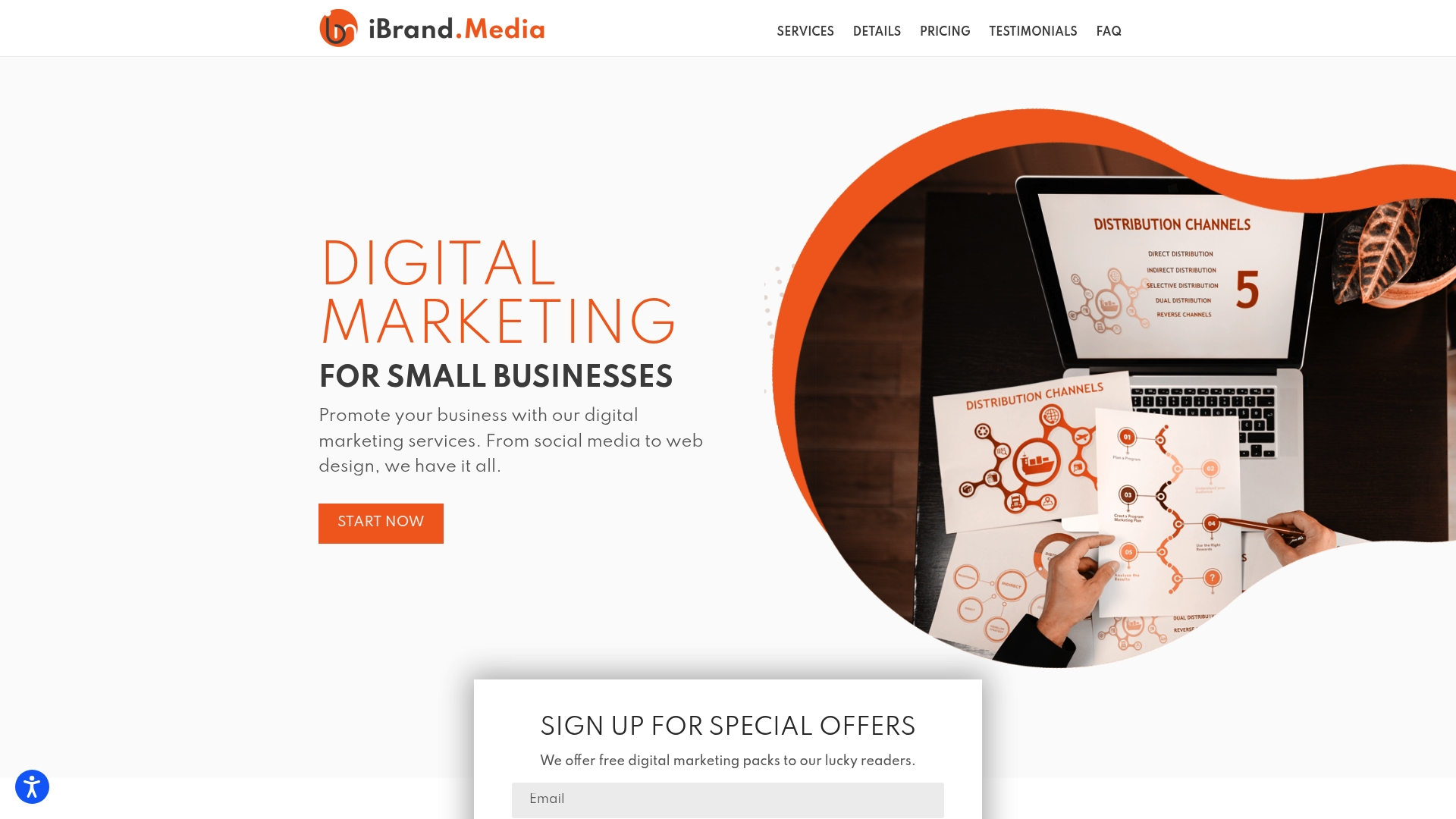Did you know that businesses investing in search engine optimization see an average ROI of between 200% and 748%, far outpacing most paid advertising? With search engines driving over 90% of global online experiences, your company’s digital footprint shapes real-world results. Adapting to the latest SEO trends, algorithm updates, and AI-driven search can mean the difference between stagnation and rapid growth as competition intensifies in 2025.
Key Takeaways
| Point | Details |
|---|---|
| Significant ROI from SEO | Businesses see average ROI from SEO ranging from 550% to 748%, making it a more cost-effective investment than paid advertising. |
| Evolving Search Strategies | Adapting to AI-driven search technologies and focusing on user intent are crucial for successful SEO in 2025. |
| Long-term Sustainability | SEO strategies lead to lasting online presence and reduced customer acquisition costs compared to paid ads. |
| Avoiding Common Pitfalls | Key pitfalls such as content neglect and poor talent selection must be addressed to maximize SEO effectiveness. |
Table of Contents
- Defining Seo And Its Business Impact
- Latest Seo Strategies For 2025 Success
- Key Trends And Google Algorithm Updates
- Comparing Seo Versus Paid Marketing In 2025
- Cost, Roi, And Common Seo Pitfalls
Defining SEO and Its Business Impact
Search Engine Optimization (SEO) is the strategic process of enhancing your online presence to improve visibility in search engine results, directly translating digital visibility into business growth. According to research from Understanding Why SEO Matters in 2025, businesses can expect significant returns from targeted optimization efforts.
The business impact of SEO is profound and quantifiable. Recent studies show that 82% of companies report a positive return on investment within 6-12 months, with average ROI ranging from 200% to 500%. Specifically, businesses experience around a 45% increase in organic traffic within six months, and SEO leads close at an impressive 14.6% compared to just 1.7% for paid search—making SEO a cost-effective long-term strategy.
Key business benefits of SEO include:
- Increased organic website traffic
- Higher search engine rankings
- Enhanced brand credibility
- More qualified lead generation
- Long-term marketing sustainability
In 2025, SEO remains critical, with 92% of companies achieving at least 1.8× return on ad spend (ROAS) within eight months, demonstrating its continued effectiveness even amid evolving digital landscapes and AI-driven search behaviors.
Latest SEO Strategies for 2025 Success
The digital marketing landscape continues to evolve, and successful SEO strategies in 2025 demand a multifaceted approach. Understanding the Latest SEO Trends 2025 for Small Businesses highlights the critical importance of adapting to new technological advancements and search engine algorithms.
According to research, key SEO strategies for 2025 center around several pivotal elements:
- E-E-A-T Optimization: Enhancing Experience, Expertise, Authoritativeness, and Trustworthiness
- AI-Powered Content Creation: Leveraging machine learning for intent understanding
- Technical Performance: Focusing on Core Web Vitals and page experience
- Conversational Search: Optimizing for voice and AI-driven search queries
- Rich Media Integration: Prioritizing video and image optimization
The most advanced SEO techniques now incorporate AI tools like ChatGPT for content generation, implement sophisticated schema markup for enhanced search result features, and prioritize mobile-first design. Research indicates that businesses implementing these strategies can expect significant improvements in search visibility and user engagement, with a particular emphasis on creating personalized, user-focused content that directly addresses searcher intent.

Key Trends and Google Algorithm Updates
Google’s search landscape continues to transform dramatically in 2025, with algorithm updates focusing heavily on user experience, AI integration, and content quality. Optimizing Websites for Search: A Guide for Small Businesses 2025 highlights the critical evolution of search technologies that demand adaptive strategies from businesses.
The most significant trend emerging is Generative Engine Optimization (GEO), which represents a fundamental shift in content strategy. According to research, GEO involves optimizing content specifically for AI-driven search results by using structured content cues and AI-specific metadata to increase the likelihood of citations in AI-generated responses.
Key algorithm update trends for 2025 include:
- Enhanced AI content detection and quality assessment
- Deeper context understanding through machine learning
- Prioritizing user intent over keyword density
- Increased emphasis on E-E-A-T (Experience, Expertise, Authoritativeness, Trustworthiness)
- More sophisticated semantic search capabilities
Businesses must now craft content that not only satisfies traditional SEO requirements but also becomes compelling for AI systems to reference, creating a more intelligent and nuanced approach to digital visibility.
Comparing SEO Versus Paid Marketing in 2025
The digital marketing landscape in 2025 presents a clear winner in the ongoing debate between SEO and paid advertising. SEO vs Paid Advertising: Understanding Their Differences reveals the critical financial advantages of organic search strategies over traditional paid marketing approaches.
Research demonstrates a compelling economic argument for SEO investment. In 2025, SEO delivers an astounding average return on investment (ROI) ranging from 550% to 748%, significantly outperforming paid advertising. Conversion rates tell an equally impressive story, with SEO generating 14.6% conversions compared to 10% for paid ads. For every $100,000 invested, SEO generates approximately $51,724 in revenue, while paid ads produce only around $23,275.
Key comparative metrics highlight SEO’s superiority:
- Higher Return on Ad Spend (ROAS): SEO provides 19.9× ROAS versus 4.4× for paid ads
- Lower Customer Acquisition Costs: SEO reduces cost per paying customer to $126.09, compared to $552.93 for paid advertising
- Long-Term Sustainability: Organic strategies build lasting online presence
- Credibility: Organic search results are perceived as more trustworthy
- Cumulative Performance: SEO benefits compound over time
For businesses seeking cost-effective, sustainable marketing solutions, the data overwhelmingly supports prioritizing SEO as the more intelligent investment strategy in 2025.
Here’s a comparison of SEO and Paid Advertising performance in 2025:
| Metric | SEO | Paid Advertising |
|---|---|---|
| Average ROI | 550%–748% | Lower, varies |
| Conversion Rate | 14.6% | 10% |
| Revenue per $100K Invested | $51,724 | $23,275 |
| ROAS (Return on Ad Spend) | 19.9× | 4.4× |
| Cost Per Customer | $126.09 | $552.93 |
| Trust & Credibility | High | Lower |
| Sustainability | Long-term | Short-term |
Cost, ROI, and Common SEO Pitfalls
Investing in SEO requires strategic planning and understanding of potential returns across different business sectors. 7 Common Digital Marketing Mistakes to Avoid provides crucial insights into navigating the complex landscape of search engine optimization.
Research reveals significant variations in SEO return on investment (ROI) across industries. B2B SaaS companies can see returns around 702%, real estate typically achieves 400%, and local SEO campaigns can reach up to 700% ROI. Critically, SEO leads cost approximately 61% less than paid leads, with most campaigns showing positive returns within 6-12 months.

Common SEO pitfalls that businesses must avoid include:
- Poor Talent Selection: 51% of SEO success depends on hiring the right expertise
- Content Quality Neglect: Failing to create compelling, relevant content
- Technical SEO Weaknesses: Inadequate site speed and optimization
- Inflexibility: Not adapting to AI-driven search behavior changes
- Inconsistent Strategy: Lack of continuous optimization and monitoring
Successful SEO in 2025 demands a holistic approach that combines technical excellence, high-quality content, and adaptive strategies tailored to evolving search technologies.
Ready for Real SEO Results in 2025?
Your business deserves more than just visibility. In 2025, staying ahead means adapting to the latest search trends like E-E-A-T, AI-driven content, and Generative Engine Optimization. Many businesses struggle with getting measurable ROI, keeping up with Google updates, and avoiding common mistakes such as hiring the wrong SEO partner or missing out on technical improvements. If these challenges sound familiar, you are not alone.
Explore proven strategies and solutions that address these pain points right now at our Uncategorized | Ibrandmedia section. Discover how we help small and medium businesses achieve high returns, greater online trust, and sustainable growth with customized digital marketing plans.

Take the next step with a partner that puts your growth first. Start your transformation at https://ibrand.media and request a free evaluation. Secure lasting success and outpace your competitors by acting today. Your audience is searching. Make sure they find you.
Frequently Asked Questions
What is the impact of SEO on business growth in 2025?
Investing in SEO can lead to significant business growth by increasing organic website traffic, improving search engine rankings, and generating qualified leads. Approximately 82% of companies report a positive ROI within 6-12 months, with returns ranging from 200% to 500%.
How does SEO compare to paid advertising in terms of ROI?
SEO offers a higher average ROI of around 550% to 748%, significantly outperforming paid advertising. Additionally, SEO achieves higher conversion rates, with 14.6% of organic leads converting compared to 10% for paid ads.
What recent strategies should businesses adopt for SEO in 2025?
Key SEO strategies for 2025 include E-E-A-T optimization, AI-powered content creation, technical performance enhancement, conversational search optimization, and rich media integration, such as video and image optimization.
What common pitfalls should businesses avoid when investing in SEO?
Businesses should avoid common pitfalls such as hiring inadequate talent, neglecting content quality, ignoring technical SEO, being inflexible with strategy adaptation, and failing to maintain consistent optimization efforts.

Recent Comments